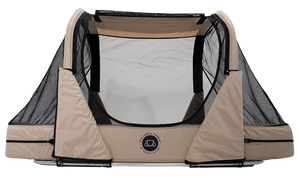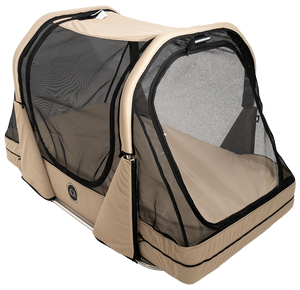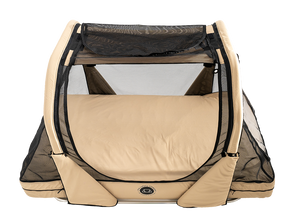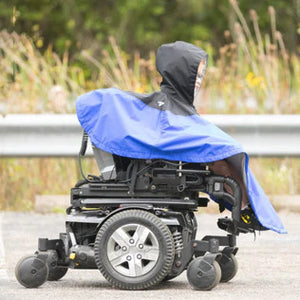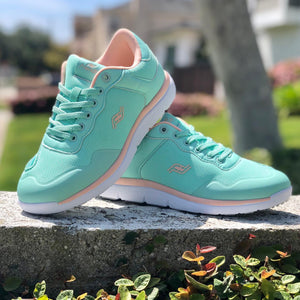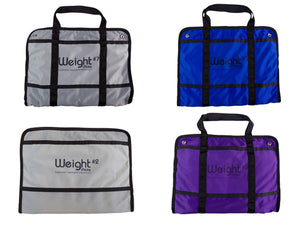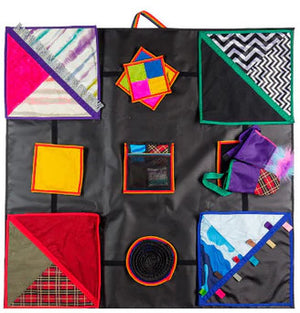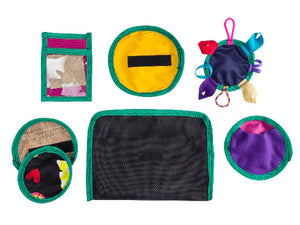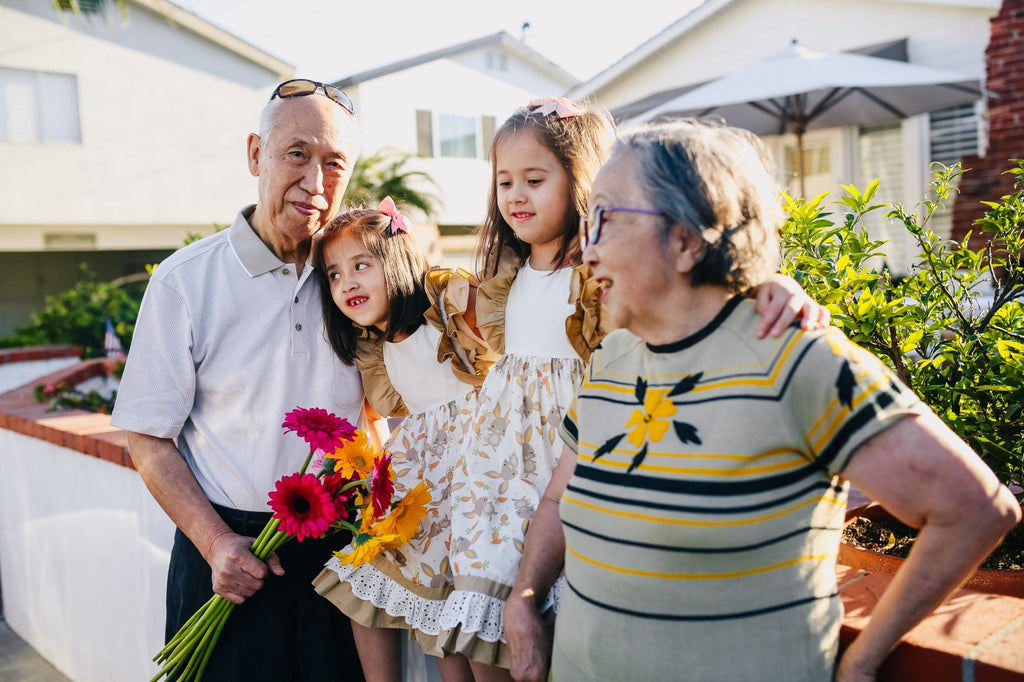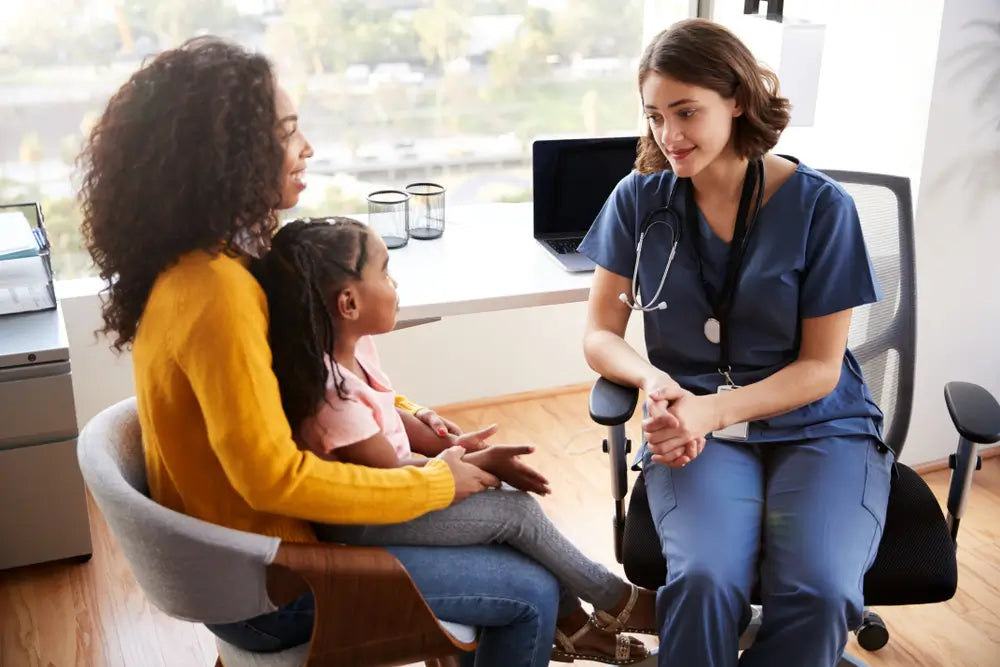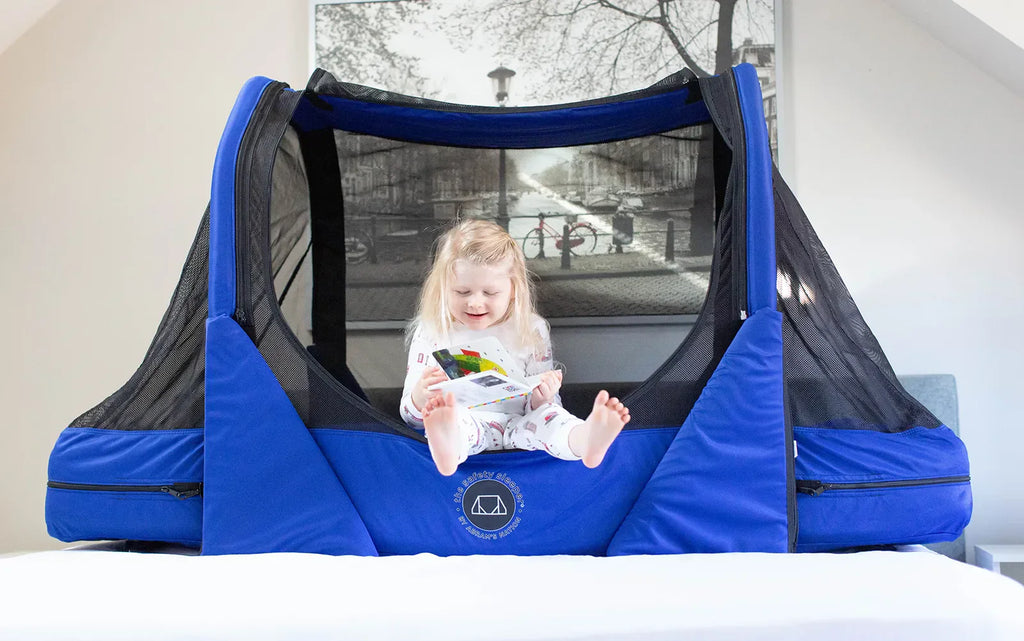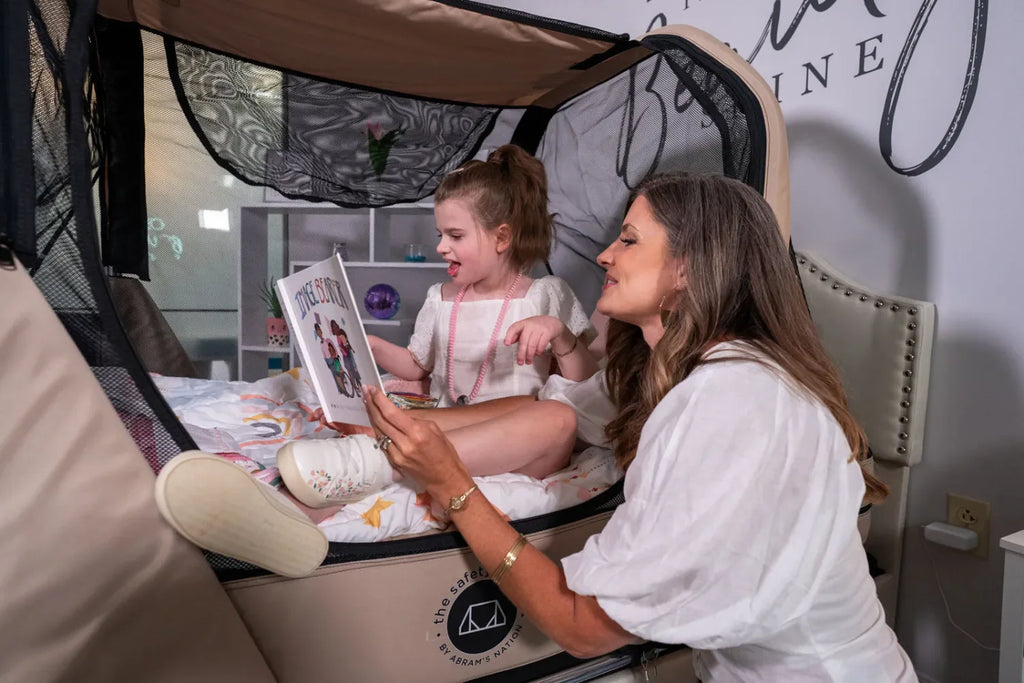Originally published on the Abram's Nation Blog on August 6, 2019
There was a time years ago, before The Safety Sleeper®, that I had two disheartening beliefs: that I would never again sleep through the night and that I would never again travel away from home. We had recently learned of Abram’s diagnosis on the autism spectrum, and we were searching desperately for a solution to keep him safe at night from wandering. I felt like a prisoner in my own home, fearing we couldn’t ensure Abram’s safety even at home, much less in new surroundings if we dared to travel.
For those who know me, you can be sure I wasn’t willing to keep those disheartening beliefs for long! I HAD to sleep and I HAD to be able to travel to visit family and friends, attend conferences and take vacations, so I kept talking about the sleep issue and exploring all possibilities until ultimately designing The Safety Sleeper®. It was the perfect solution for our family, providing a safe sleeping arrangement for both home and travel.
Once we were free to travel, we had to find solutions for other travel needs. How could we navigate a stressful airport? Would we find inclusive attractions at our destination? Travel resources have come a long way in recent years and I’m encouraged by the focus on both accessibility and inclusiveness. With that in mind, here are some travel tips we’ve compiled from our Abram’s Nation/Safety Sleeper community.
Rent The Safety Sleeper® and Other Medical Equipment
The Safety Sleeper® and other medical equipment are available on loan at many destinations. We recently donated The Safety Sleeper® to Give Kids the World Village to provide opportunities for more families to visit without concerns about how their child would be safe at night. There are rental companies, such as our partner, which provides peace of mind for travelers by arranging medical equipment rentals at their destination. From The Safety Sleeper® and feeding equipment to wheelchairs and specialty strollers, you can reserve the equipment you need while traveling. You can also rent The Safety Sleeper® through us directly. Contact us by completing this form or by calling 724-967-5337 to discuss your travel needs.
Find Inclusive Destinations and Attractions
Pittsburgh International Airport recently opened a world-class sensory room to assist travelers. PIT joins other airports that have created sensory friendly or quiet rooms, including Hartsfield-Jackson Atlanta International Airport, Shannon Airport in Ireland, and others such as Miami International that joined the ranks in recent months. With the resources available at these and other airports, families can find some respite from the stresses of air travel.
Once you’ve reached your destination, you can find accessible and inclusive attractions.
- Many organizations, such as symphonies, theatres, museums and ballparks, provide sensory and accessibility support, from special performances and quiet rooms to sensory bags and wheelchair availability.
- Look for Certified Autism Centers at your destination. This certification by the International Board of Credentialing and Continuing Education Standards (IBCCES) recognizes organizations that have highly trained staff and are fully equipped to serve individuals with autism.
- Check out the KultureCity® app, which provides resources and information on Sensory Inclusive™ locations, a certification for locations that have completed initiatives such as staff training and impactful modifications to provide daily accessibility for all.
- Seek out specific destinations, such as Morgan’s Wonderland ultra-accessible™ theme park and Morgan's Inspiration Island splash park. The Hartman family, inspired by daughter Morgan, has created opportunities for everyone to have fun. They have thought of every need, including waterproof wheelchairs!
More Quick Tips
You have probably heard about wish-granting organizations such as Make-A-Wish, but did you know that many organizations provide scholarships and travel grants for families who may otherwise not be able to attend conferences? If travel costs are a concern, please check with the conference host to see if they offer scholarships. Visit the Non-Profit Organizations & Helpful Services page on our website for links to many organizations.
Did you know that medical equipment, such as The Safety Sleeper®, can be checked on airlines free of charge? The Air Carrier Access Act details requirements for airlines for accessibility and other accommodations for all passengers. If you are traveling with The Safety Sleeper® or other medical equipment, request that the airline waive typical baggage fees. We’ve prepared a letter you can share with your airline representative.
As we all make strides toward accessibility and inclusiveness, let’s share the resources we have found. From portable products like The Safety Sleeper® to the best airports or destinations, what travel tips would you add to this list?


